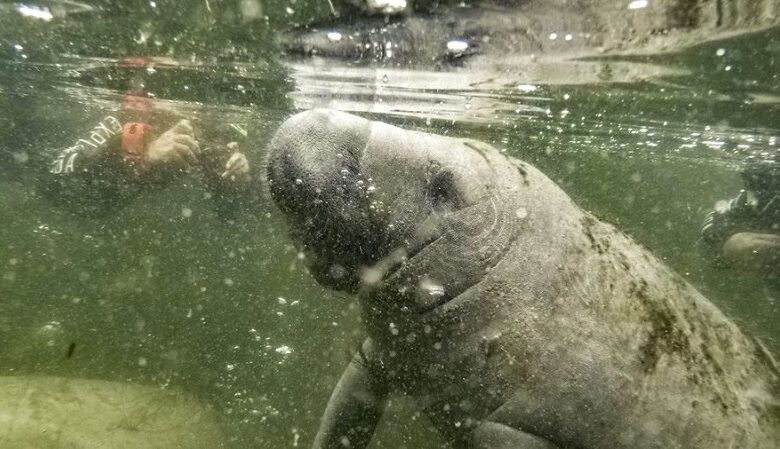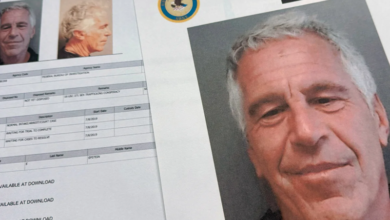A Lifeline for Florida’s Manatees: Efforts to Restore Endangered Status Gain Traction

Edited By Agnibeena Ghosh
Florida’s beloved manatees, known as sea cows, may be on the cusp of a significant turnaround after years of declining numbers, driven by threats such as habitat loss, toxic algae pollution, and dwindling food sources. The process to potentially reclassify these gentle marine mammals from their current “threatened” status to “endangered” is now underway, offering hope for their conservation.
This promising development comes in response to a petition filed almost a year ago by a coalition of environmental groups, led by the Center for Biological Diversity (CBD), which demanded a reevaluation of the manatee’s status. The petition was based on data illustrating that pollution and habitat loss had contributed to a substantial population decline, with over 1,000 manatees lost in each of the past two years alone. Currently, it is estimated that only about 7,500 manatees remain in Florida.
The reclassification, if approved at the end of a 12-month in-depth review announced by the US Fish and Wildlife Service (FWS), would have significant implications. It would free up vital federal resources and funding for manatee recovery efforts that have been hindered by an ongoing “unusual mortality event.”
According to Ragan Whitlock, a staff attorney at CBD specializing in endangered species, the manatee population is at a critical juncture. “We’ve lost 20% of the entire manatee population over the course of two years, and that resulted directly after the service downlisted the species back to threatened,” Whitlock explained. “If we do not radically overhaul and improve our recovery efforts, starting with the protection of their habitat, we could very well lose this iconic Florida species.”
In recent years, emergency efforts to protect manatees have included hand-feeding them romaine lettuce in areas where algal bloom pollution has decimated seagrass beds, a vital food source for these herbivorous creatures.
The delay in the FWS response to the petition is viewed by some as evidence of the agency’s inadequate resources for manatee recovery efforts. Whitlock pointed out that the downlisting of manatees in 2017 led to a reduction in dedicated personnel at both the Fish and Wildlife Service and the Florida Wildlife Conservation Commission (FWC). This signaled to many that recovery efforts were deemed sufficient to maintain the species, which he believes is a flawed assumption. He emphasized the need for additional agency personnel devoted to manatee recovery.
In response to these concerns, the FWS issued a statement emphasizing that there was no reduction in staff or budget following its 2017 decision to downlist manatees. It further noted that it had increased the number of staff working on manatee-related tasks since 2020. The agency also clarified that the upcoming evaluation would be conducted by existing staff members in their Florida and Caribbean field offices.
However, environmentalists consider the reevaluation as just the beginning of a more extensive effort required to secure the recovery of manatee populations. It is not only a matter of reclassification but also a fundamental need to protect their habitats and address ongoing threats such as toxic algae pollution and habitat loss.
The push to restore the endangered status of Florida’s manatees is a vital step toward their protection and recovery. By doing so, it would not only provide access to crucial federal resources but also draw attention to the urgent need to address the complex challenges facing these iconic marine mammals. The fate of the manatees is not only significant for Florida but for global conservation efforts, as their story highlights the intricate balance between political decisions and the realities of preserving vulnerable species in the face of environmental threats.
(Source: The Guardian)
News Mania Desk / Agnibeena Ghosh 25th October 2023






